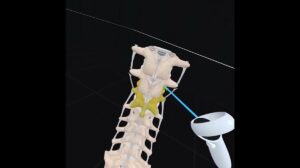An experimental immunotherapy technique is having unprecedented success against late-stage, blood-born cancers. While the results of these promising studies have not yet been peer-reviewed and published, attendees at the recent American Association for the Advancement of Science conference got a sneak peak at some of the findings.
In one particular trial, 35 lymphoblastic leukemia patients, of which most were estimated to have less than five months to live, were treated with this gene-transfer therapy. 94% of those patients saw their symptoms completely disappear. In another study involving other forms of blood cancer, 80% of patients had improved response rates, and half of those patients were in complete remission.
This is not being hailed as a “cure for cancer” just yet, but the method could be a powerful tool and treatment-of-last-resort for physicians treating patients with progressive cancers. Even though the results have been astonishing when considering the terminal nature of the illnesses this therapy has repaired, many patients suffered toxic side effects. Two of the patients passed away from the combination of their cancer and the toxicity of the treatment.
Click here to read the article published by the Fred Hutchinson Cancer Research Center News Room.




